Harmonizing with nature: A couple in Davao City practice permaculture farming to promote self-sufficiency and food security
By James Tababa
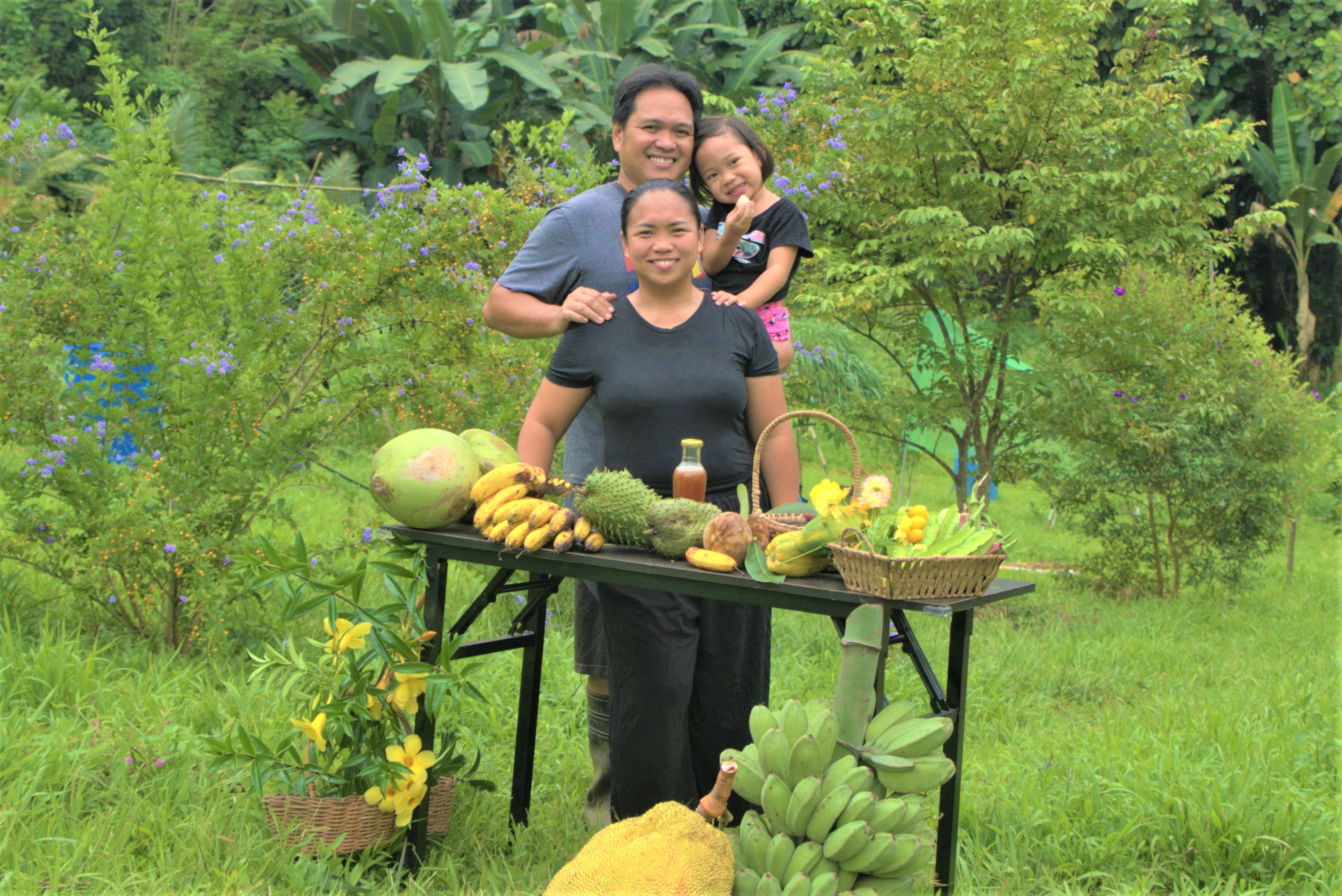
In the city of Davao, Philippines, Reginald and Rhoda Cua, a husband and wife, transformed their property, Eden FAITH Garden, into a thriving farm at the foot of the Mt. Talomo mountain range. They have been practicing permaculture for the past three years. Permaculture is a system of design that mimics the patterns and relationships found in nature. It is a holistic approach to land management that seeks to create sustainable and productive systems. At Eden FAITH Garden, Reginald and Rhoda have created a diverse and thriving ecosystem as they grow a variety of fruits, vegetables, and herbs, as well as chickens, turkeys, and fish.
Reginald used to personally assist his father in farming once a week. They have a variety of livestock and also cultivate vegetables. Due to his prior experience, farming is a familiar and well-known activity for him.
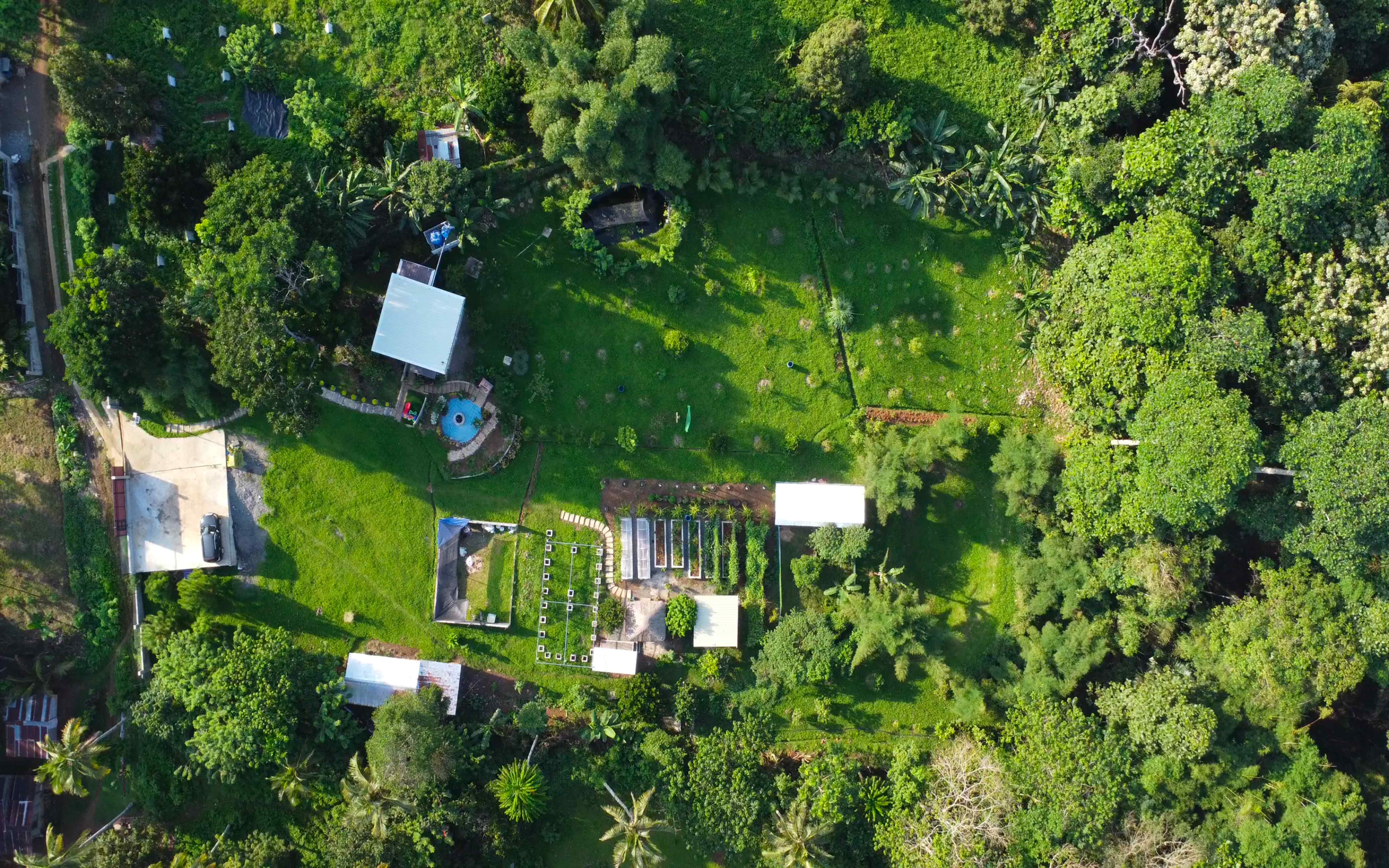
Rhoda shared that she had a similar upbringing. She explained that their practice of having a small garden was not limited to their current location in Eden FAITH Garden but was also present in the places they had lived in before. They made sure to have a garden, even if it meant using containers or cultivating directly on the land. They always planted something wherever they stayed. Eventually, they were able to acquire the property in Davao City. It seemed like they expanded upon their gardening practices from their previous locations.
Before the pandemic, Reginald and Rhoda were both working in the real estate industry. During that time, he had the responsibility of scouting for properties. Reginald recognized the potential of the area that was soon to be their farm and not only did he see the potential, but he also noticed that the price of the property was significantly lower than the market value. He purchased the property in August 2019, before the pandemic hit.
With the onset of the pandemic, they quickly realized the importance of self-sustainability and the need for a stable food source. To address this, they immediately started planting a variety of plants and vegetables on the farm. Their main goal was to ensure that they had enough food to sustain themselves during the uncertain times brought about by the pandemic.
Farming as a mode of interactive learning
At that time, Rhoda was pregnant with her second child. “We are homeschoolers,” she said. “Our firstborn was homeschooled until he graduated from senior high. We were thinking, why not create a learning environment for our daughter that resembles a farm school concept?"
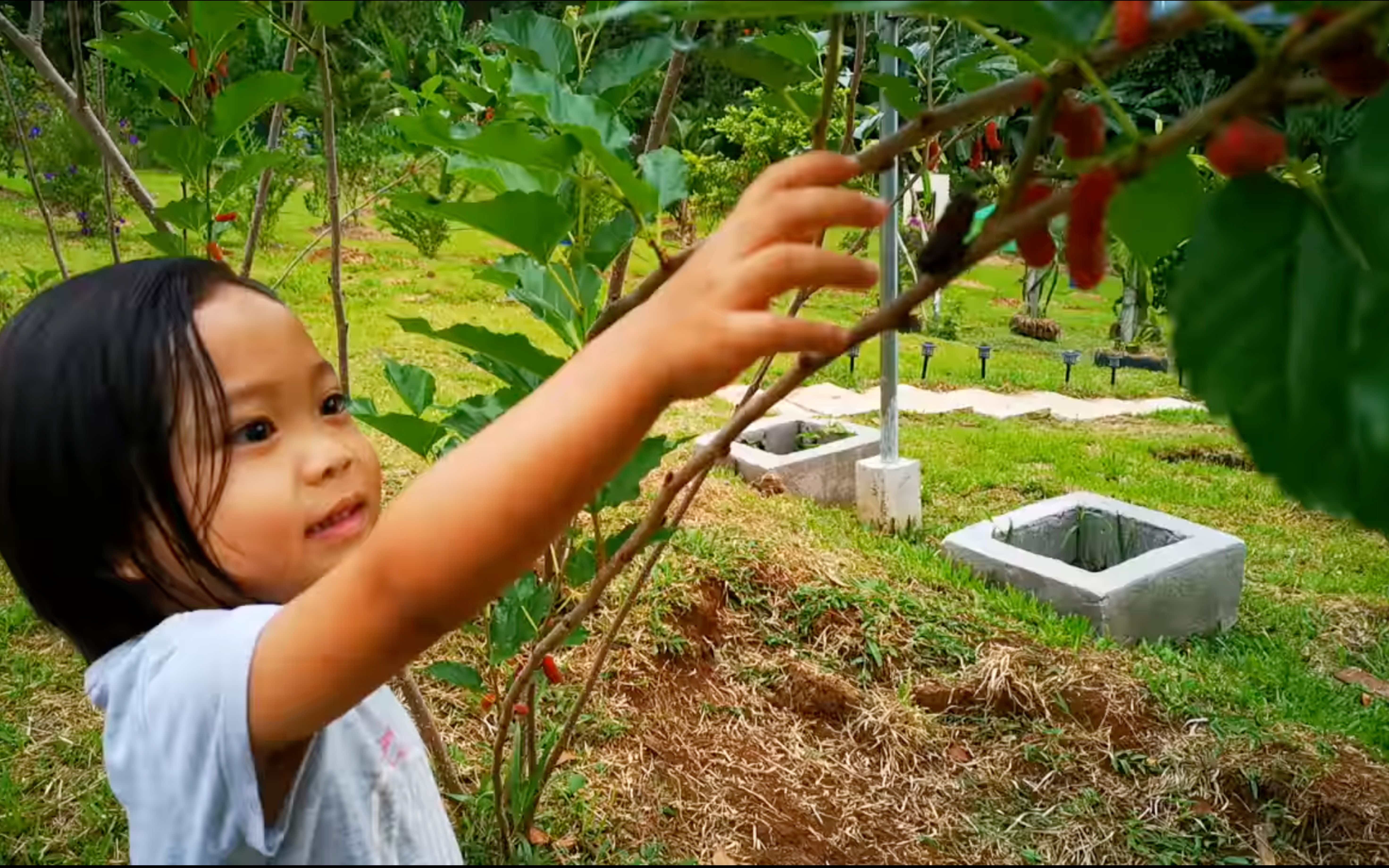
With the idea of creating a farm school concept for their daughter, Rhoda and Reginald began by planting crops to provide food and create a learning playground for their daughter. They focused on selecting fruits and vegetables that they enjoyed eating. They began with planting sweet potatoes as it was the easiest to grow. From there, they expanded their planting efforts to include fruit trees given to them by their friends, gradually increasing the variety of plants on their property.
FAITH: Food always in the home
At Eden FAITH Garden, Rhoda and Reginald practice the principle of "grow what you eat, and eat what you grow."
“The farm is named Eden FAITH Garden because FAITH stands for "Food always in the home," Rhoda said. “This concept of having food readily available at home is something we learned in an orphanage called the Institute of Foundational Learning in Laguna before we became husband and wife.”
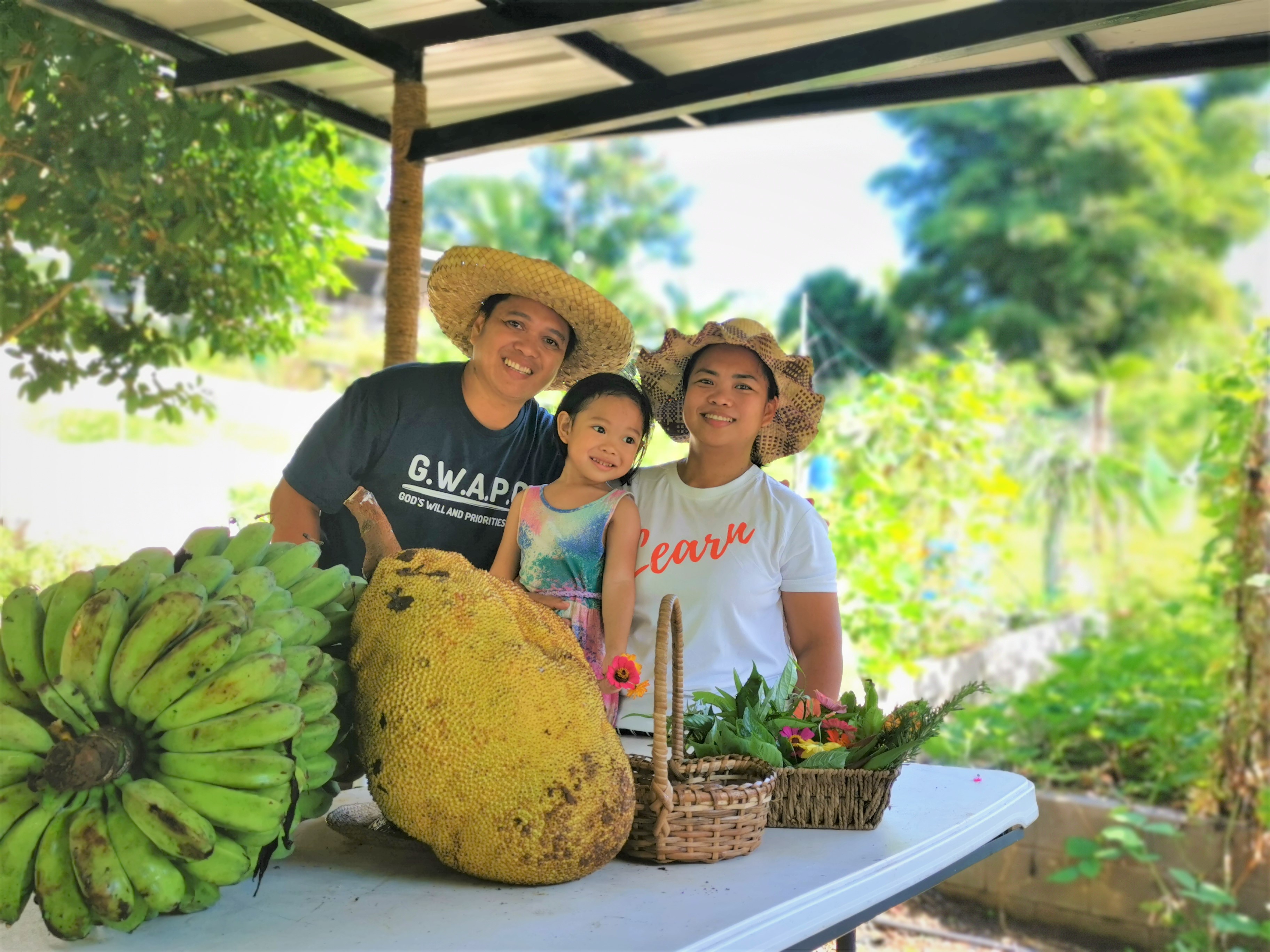
They observed an impressive feat of producing vegetables, fruits, and even the maintenance of a small rice field. The institute showcased the ability to sustain livestock, including meat and egg production in a small space. Although Reginald and Rhoda were not familiar with permaculture at the time, they consider that it is possible that the principles of permaculture were being applied in institute’s farming practices.
The idea of having a constant source of food resonated with them, and they adopted it as a guiding principle for their own farm. “I believe it's a wonderful principle that should be shared not only with farmers but also with people who have small areas at home,” Rhoda said. “Given the current situation with rising prices of the things we buy, having your own vegetables can be a great way to reduce expenses.”
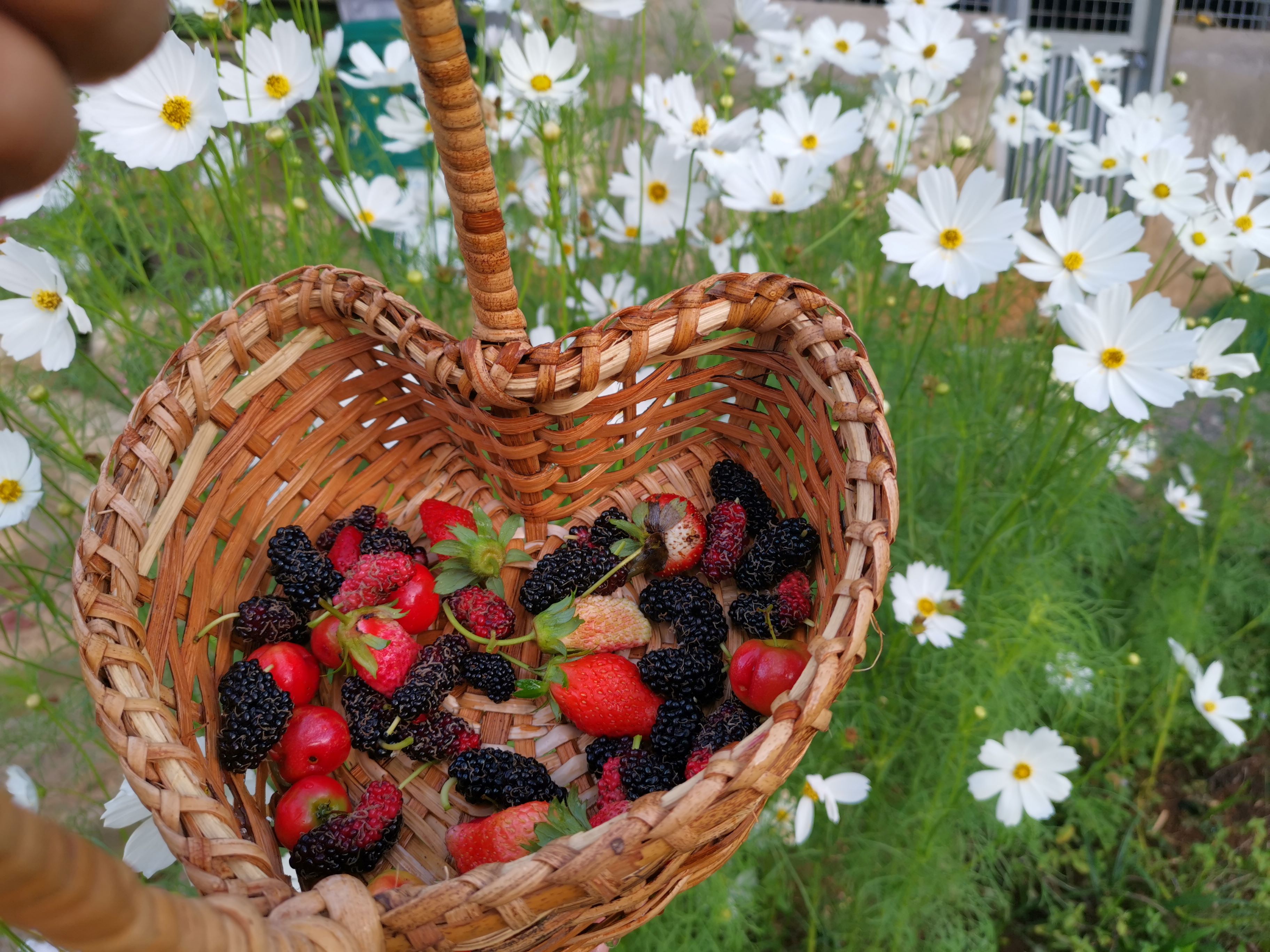
Permaculture for sustainable farming
When Reginald initially purchased the property, he had some ideas about permaculture but had not received any formal training. He relied on watching YouTube videos and reading online articles to learn about permaculture concepts and techniques. Based on his online research, he began implementing permaculture practices in the way he planted crops on the farm. However, it wasn't until this year that he had the opportunity to receive formal training via the University of the Philippines–Open University’s Permaculture Systems Design Thinking course.
During his formal training, Reginald recognized that some of the practices he had already applied on the farm aligned with the principles and concepts of permaculture. He also discovered some mistakes he had made along the way, but he viewed them as valuable learning experiences.
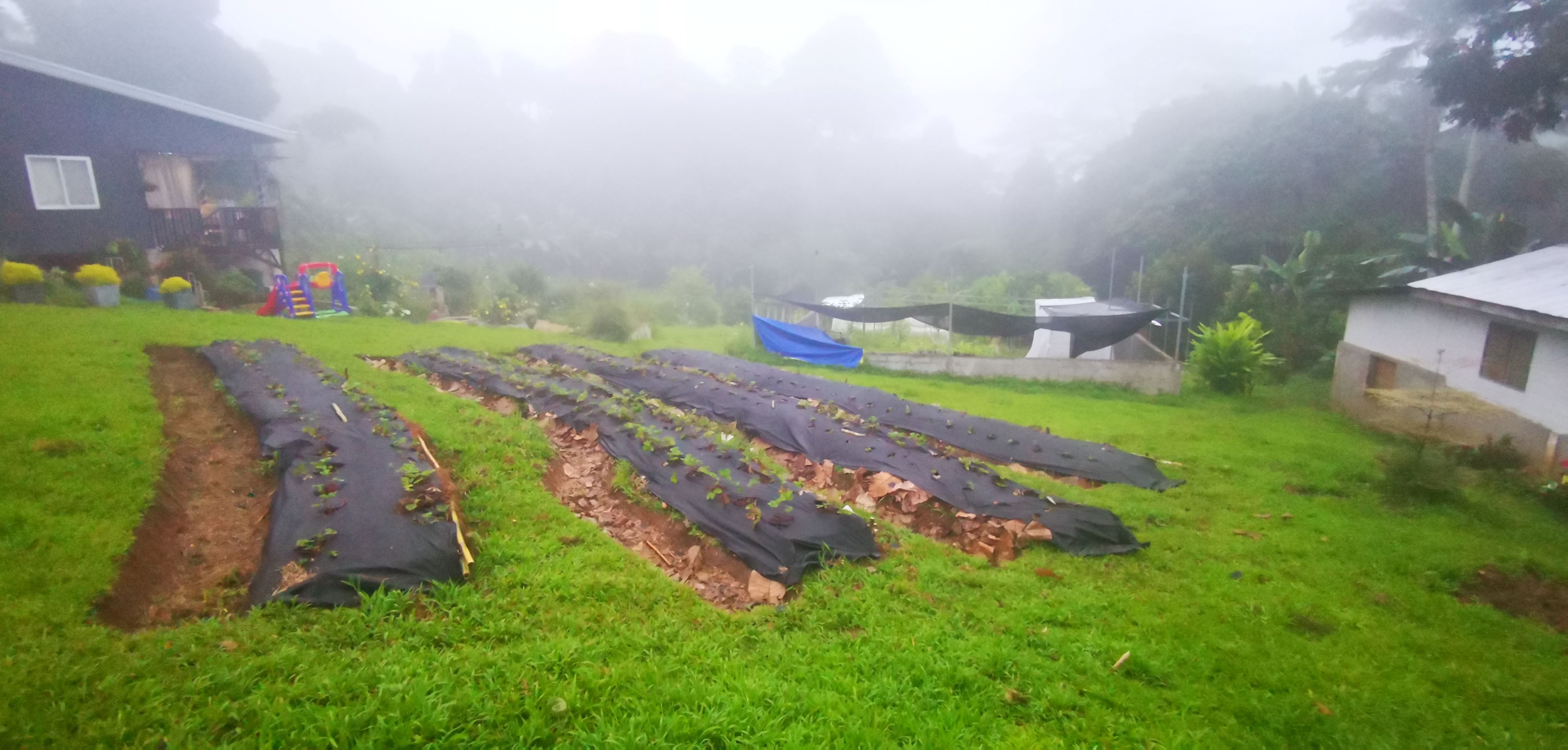
“Permaculture is a system design process and concept for human settlement and food security in partnership with nature,” Reginald said. “Organic farming is just a component of permaculture.”
When Reginald and his family first started working on the farm, they encountered challenges with the quality of the soil. The soil was very acidic, possibly due to previous practices involving inorganic and chemical pesticides. However, through the application of organic materials and a commitment to minimizing chemical inputs, the soil has gradually improved over time. Although it is not yet at its optimal state, the plants on the farm are now healthier compared to two years ago, indicating positive progress in soil recovery.
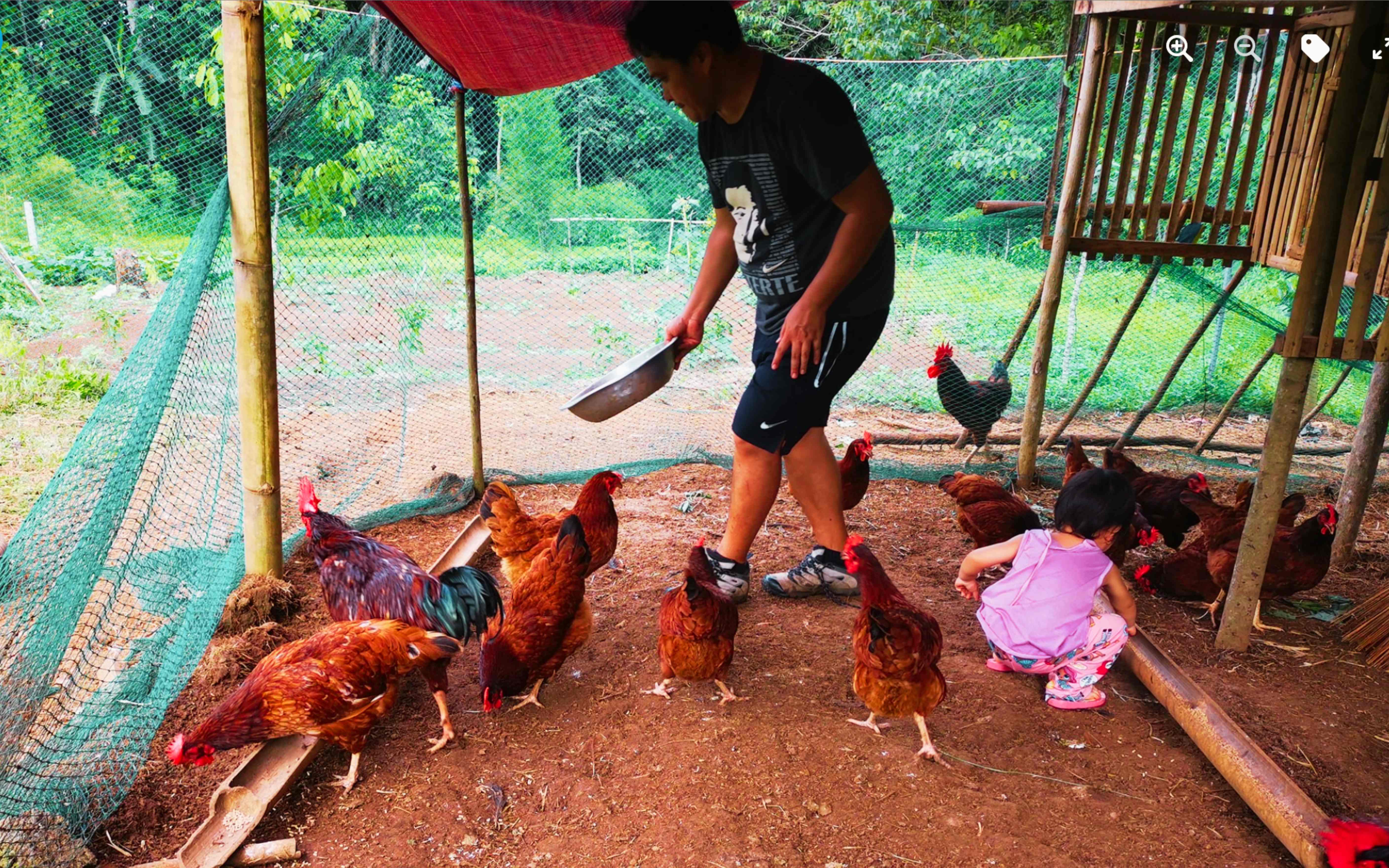
According to Reginald, permaculture focuses on creating a sustainable and regenerative system for human settlement and food security in partnership with nature. The objective of permaculture is to establish a long-term solution that can be inherited by future generations, including children and grandchildren.
"It is a form of regenerative agriculture,” Reginald said. “Over time, the soil becomes healthier, and the area becomes more productive.”
Reginald also emphasized that unlike conventional agriculture, which often involves immediate chemical application after harvesting, permaculture strives to create self-sustaining systems. The goal is to achieve self-sufficiency and minimize reliance on external inputs.
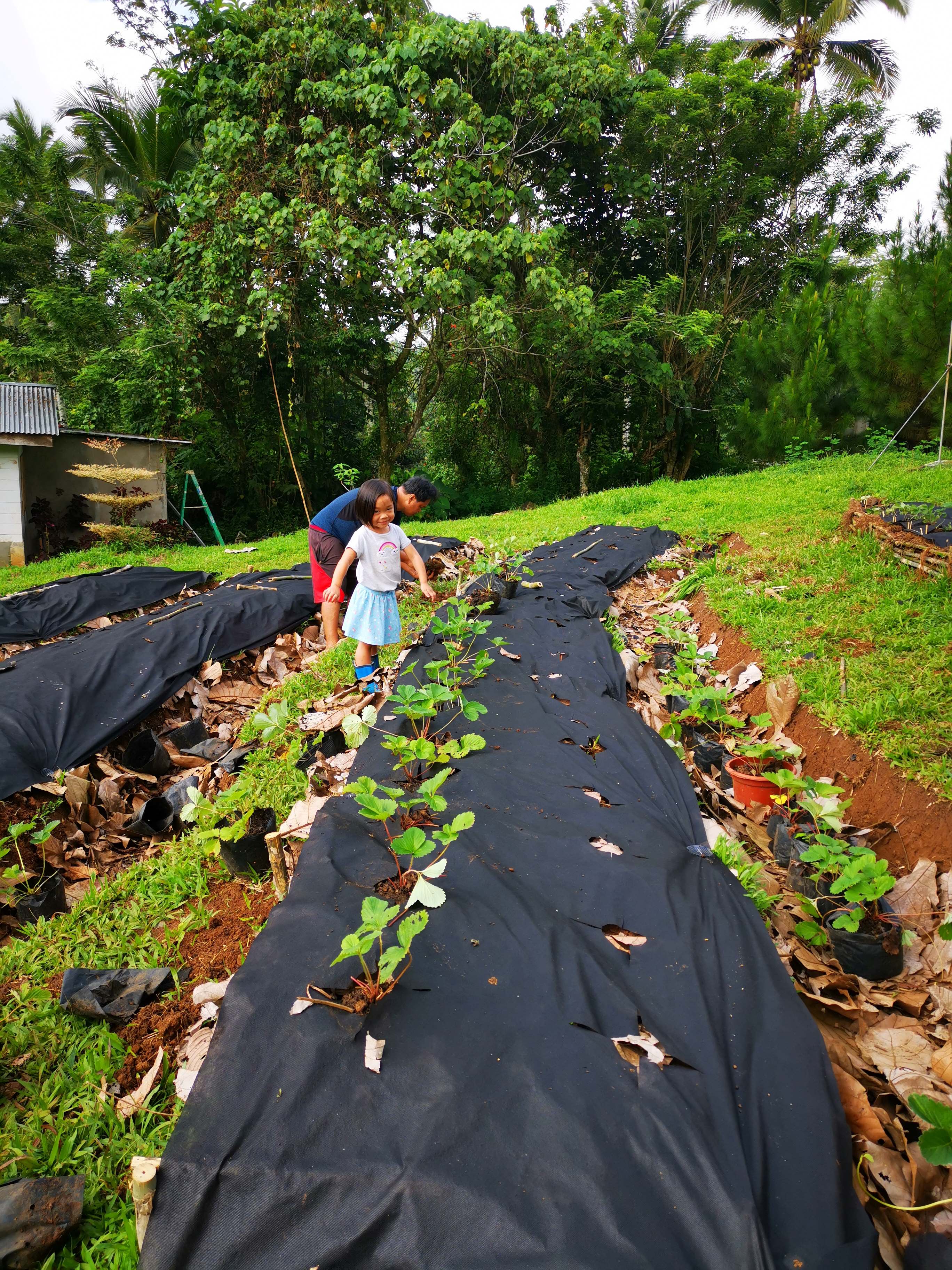
He also added that the principles of permaculture are guided by three ethics: people care, earth care, and fair share. People care involves addressing the needs of individuals and communities, particularly in terms of food production and fostering a sense of community. Earth care emphasizes the importance of working in harmony with nature and refraining from disturbing the natural environment. This is why chemicals like pesticides, insecticides, and fungicides are avoided, as they can have harmful effects on the earth. Fair share encourages the sharing of excess produce as they share them with friends, caretakers, neighbors, and even livestock, promoting a spirit of generosity and community support.
Food safety with natural farming
One of the main reasons behind their decision to pursue organic farming instead of conventional methods was the presence of their young child. They wanted their daughter, Jazzy, to be able to simply go to the garden and pick and eat fruits and vegetables without the need for washing or any intervention. They aimed for her to enjoy the strawberries she saw in the garden directly. Organic farming, in their perspective, meant avoiding the use of chemicals.
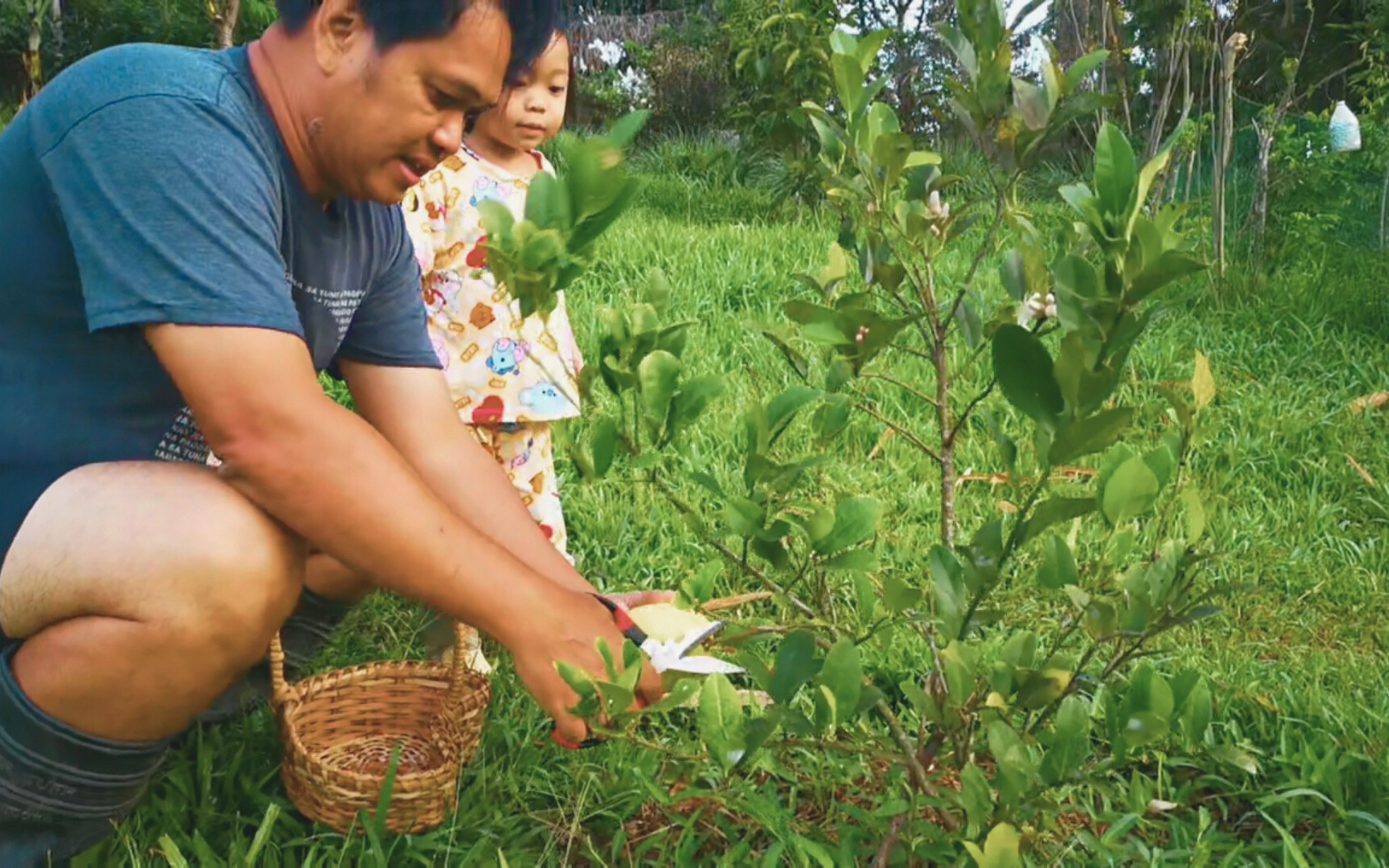
"We usually use whatever materials we have here, such as madre de kakaw, madre de agua, and neem tree,” Rhoda said. “These are the materials we use to produce our own insecticides." As a result, they had drums of FAA (Fish Amino Acid), FPJ (Fermented Plant Juice), and other organic concoctions in their backyard.
Their farm has a diverse range of plants, as they avoided monocropping. When observing their farm, one would not see conventional planting methods with a single crop dominating the area. Instead, they embraced a mixture of different crops, following the concept of permaculture, which aimed to create a food forest-like environment.
Struggles and challenges
Reginald said that like many farmers, they have encountered various challenges throughout their journey. One of the major struggles Reginald and Rhoda face is limited road access, with approximately 200 meters of rough road remaining before one can get to their farm. This poses logistical challenges for transportation and movement of resources. Additionally, when they initially purchased the land, the soil was highly acidic with a pH level of around 3 or 4. Over time, they have managed to improve the soil condition, and it is now around 6 on the pH scale.
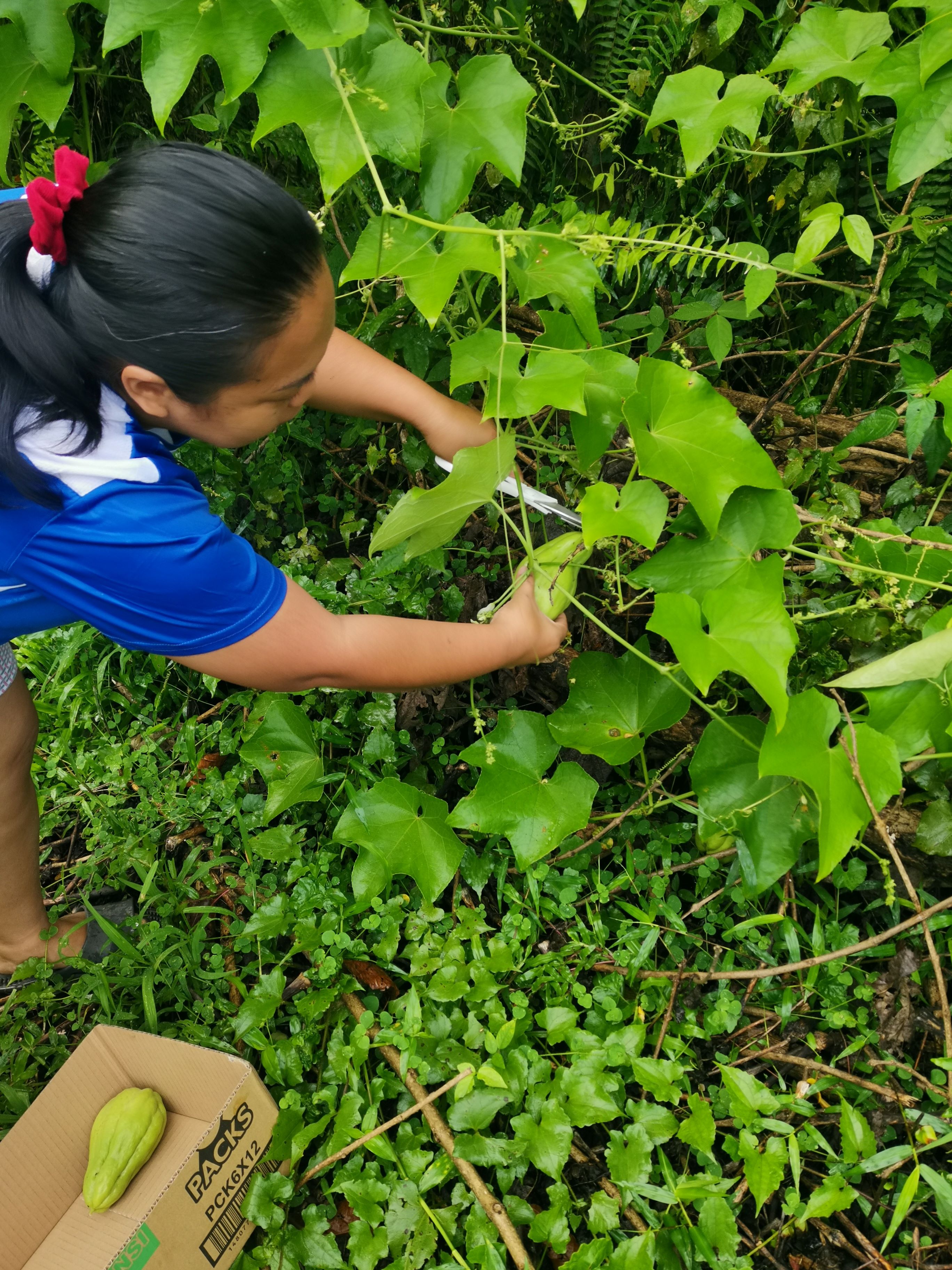
Dealing with insect pests has also been a significant challenge for them. They have encountered various pests that can damage their crops. However, over time, they have achieved a balance in their ecosystem.
“We might have a lot of aphids, but we also have ladybugs that help control them,” Rhoda said. “Additionally, we have many dragonflies that eat small insect pests in our area. In permaculture, we believe in letting nature heal itself and allowing it to take its course without unnecessary intervention.”
They have embraced the presence of snakes on their farm, recognizing their role in the ecosystem. Rather than removing them, they allow the snakes to remain, understanding that they contribute to controlling populations of pests such as rats. This approach has led to a natural balance on their farm, minimizing the need for excessive pest control measures.
Another issue they face is water scarcity. While they sometimes experience heavy rainfall, there are also times when they do not have enough water. To mitigate this, they have implemented measures such as collecting water from the house's gutter and storing it in large tanks. They have also constructed ponds to capture and contain any overflow of water.
Plans for the future
After participating in a hands-on workshop in permaculture, Reginald plans to establish a training center on their property. They intend to apply for accreditation from TESDA (Technical Education and Skills Development Authority) to formalize their training programs. It is their ambition to provide educational opportunities and consultancy services, utilizing their model farm as a practical demonstration of permaculture practices.
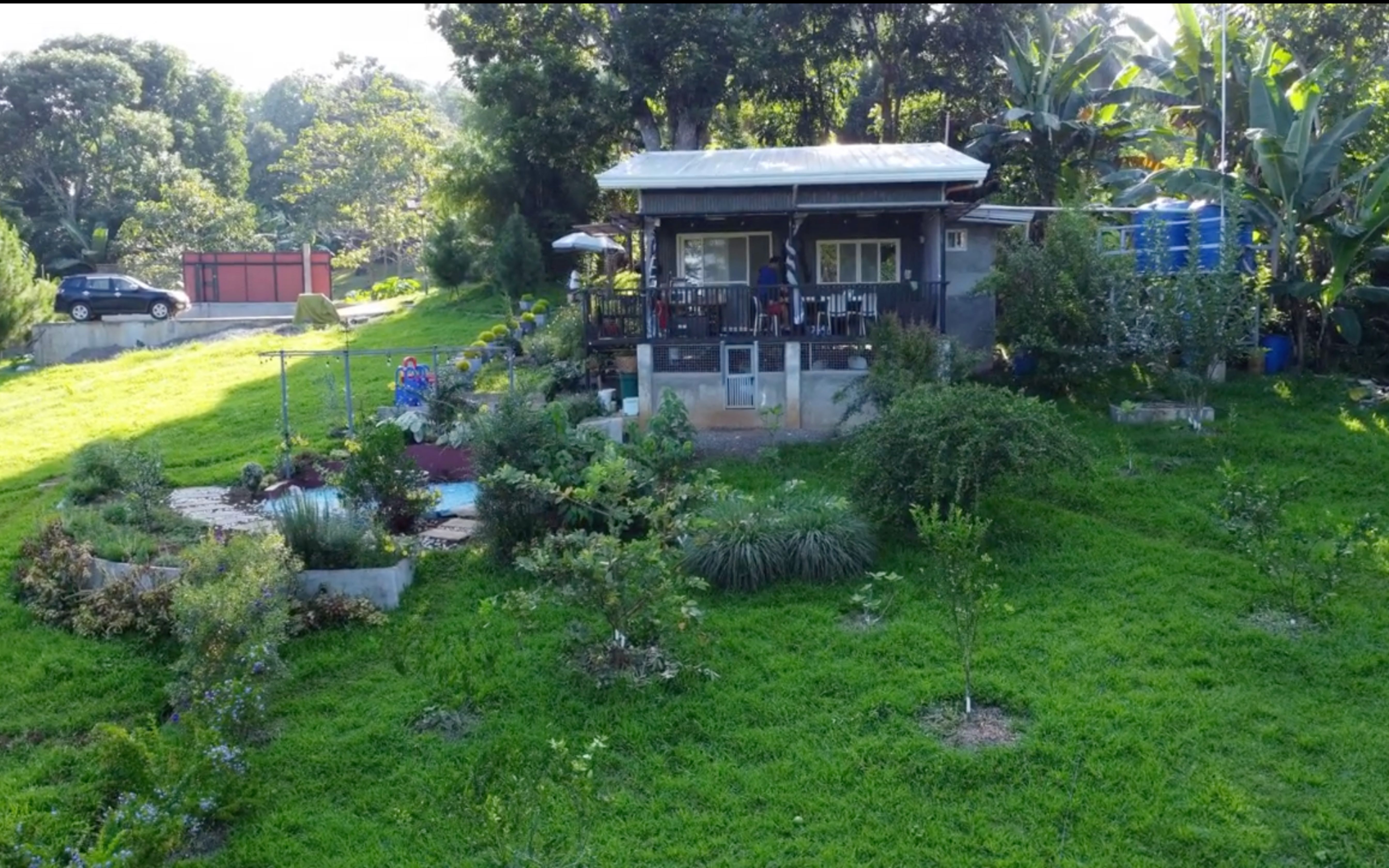
Reginald and Rhoda have been working on their permaculture project for three years now, with a focus on achieving self-sustainability, self-sufficiency, and food security. Currently, there are no plans for incorporating ecotourism or selling their produce. However, they are open to the possibility of engaging in food processing, particularly for their berries and fruits, in the future, which may be around two or three years from now. At present, they want to enjoy the produce they harvest and consume from their farm.
Rhoda and Reginald often extend invitations to their friends, and many of them have already visited their farm. Their friends have been enthusiastic about the idea of opening the farm to the public, suggesting that it could become an ecotourism site. However, Rhoda and Reginald's primary intention was to create a space for themselves to relax and enjoy. They want to fully experience and appreciate their farm before considering opening it to outsiders.
In the future, it is likely that their farm will indeed become an ecotourism destination. The farm's location is advantageous, being close to a large subdivision in Davao City. Additionally, the government has been actively promoting Toril as an agro-tourism area.
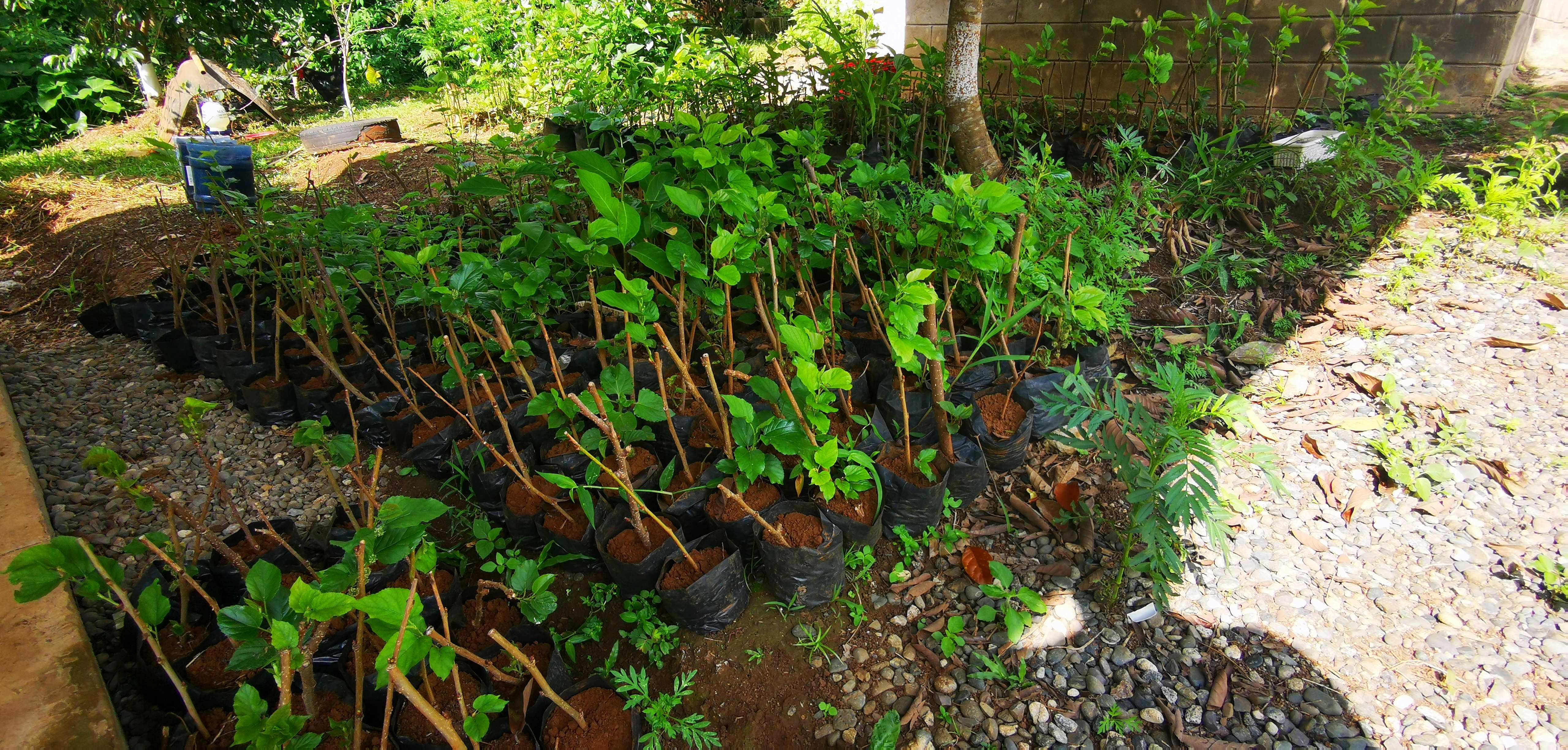
Farming can be done everywhere
Reginald believes that the concept of permaculture is not limited to farms alone — it can be applied in backyard gardens and even urban areas. He suggests starting small and gradually expanding one's permaculture practices. According to Reginald and Rhoda, a friend of theirs has a small 50-square-meter plot of land that can grow a variety of vegetables, raise tilapia, and keep chickens to meet their food needs sustainably.
“Having a small area is not an excuse to not engage in farming or growing your own food,” Rhoda said. “With determination and a genuine desire to pursue it, there are always ways to make it happen, regardless of the size of your space.”
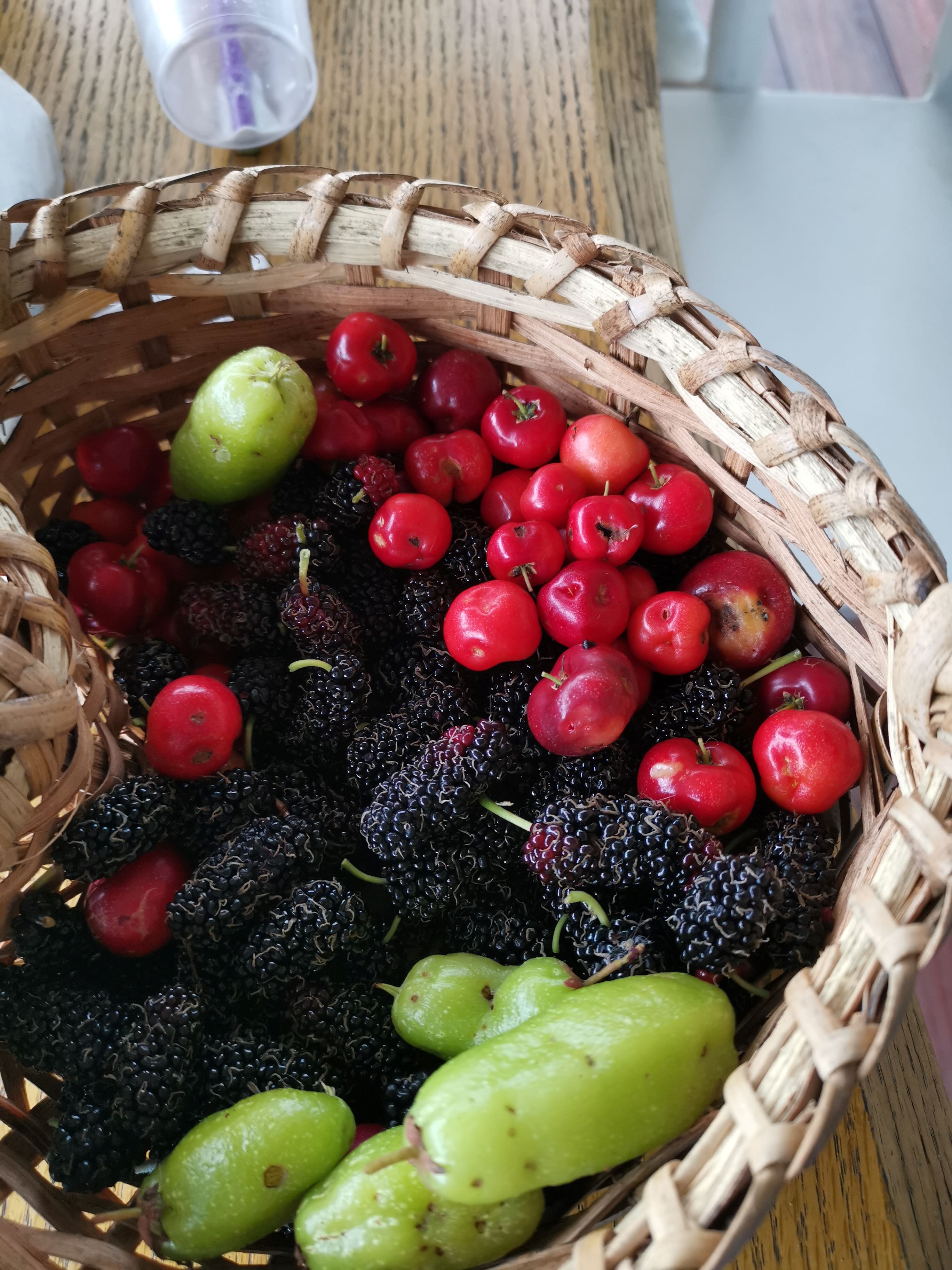
Rhoda comes to realize that farming is not limited to older individuals but is suitable for people of all ages. She expresses joy in seeing many millennial farmers who are actively practicing agricultural advocacy, including recent graduates who choose to enter the field of agriculture.
Rhoda and Reginald stress the importance of giving attention to agriculture in their country. They strongly encourage young people to consider farming as a viable path, without feeling any shame or stigma associated with it. They firmly believe that engaging in agriculture is not only a means to feed one's family but also a fulfilling endeavor worth pursuing.
In the next article, Reginald and Rhoda will talk about the permaculture methods they use on their farm and the various benefits they bring.
READ: Eight permaculture practices for sustainable farming
Photo courtesy of Eden FAITH Garden